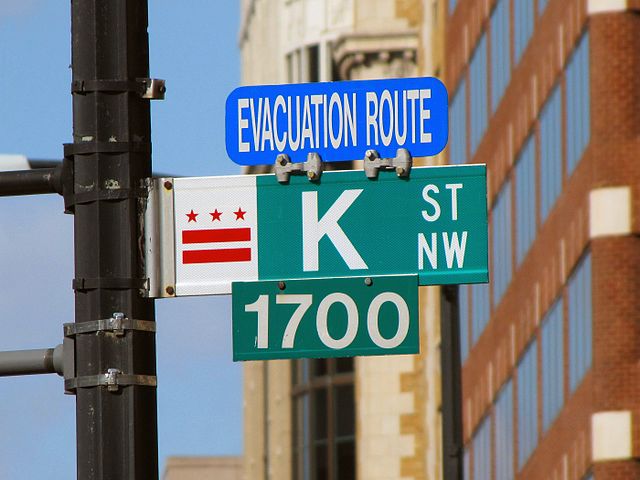
Neil Sedaka – Breaking Up Is Hard To Do
Washington is an endless maze of funhouse mirrors, a fact we’re reminded of once a year when The Hill publishes its 50 Most Beautiful list [2017 was the last one], replete with people who are Washington hot, which is a step above rehab hot and two levels below jury duty hot. All are miles below what the rest of the country considers actual hot.
TOPPOP: Carol Douglas – You’re Not So Hot
My first Air Force One trip was George W. Bush’s last as president and, for me, a comic exercise in pretense. On that short flight to Norfolk, Va., I wore my D.C. smirk, trying and failing to act bored and unimpressed. Of course, I stole two of everything and mailed it all to my mom. I’d have taken my seat with me if it hadn’t been bolted to the plane.
Know the difference between aircraft carrier cool and Washington cool—it’s easy, and dangerous, to get too swept up in the latter.
Why Do Politicians All Sound the Same?
Much of my time in Washington was one hell of a party, an endless and decadent blowout bash more suited to VH1’s Behind the Music than working in the nation’s capital.
The first couple years, I spent almost every night downing bourbon—and sometimes indulging in harder substances—at Capitol Lounge before walking back to my studio apartment in Eastern Market, occasionally with some female congressional staffer whose name I was almost always too drunk to remember. (I later sought out and apologized to as many of those women as I could. To the ones I missed: I’m profoundly sorry for my behavior.)
As my self-importance grew, I needed a more pretentious watering hole to match. The bar Off the Record at the Hay-Adams became my second home, and for a long time I couldn’t imagine ever getting tired of seeing former Sen. Gary Hart and Ron Kirk, Obama’s first U.S. trade representative, in the same bar—my bar. Hard as it is to believe, even that thrill eventually wore off.
I suppose part of my disillusionment had to do with my breakup with bourbon, after a real-life, devastating romantic breakup that was followed by a downward spiral. When I returned from my 28 days in rehab, in January 2010, it was harder to ignore the near criminal disconnect between Washington and the rest of the country, especially in an industry that has turned neighbors against each other while its instigators clock out and meet for a beer together, skilled actors who in many cases spend the day feigning hatred for each other on camera but are actually bound by their shared nihilism and reckless self-absorption. In Washington, a divided America is good for business.
“This Town” Author Mark Leibovich on Shaming D.C.’s Elite
I was so trapped in the bubble of my own artificially inflated ego that I once tweeted a smug remark (the precise wording of which is lost to memory) about a man in Janesville, Wis., after he called me a “jackwagon.” I thought I was funny and for some reason superior to the man, even though he said it after I stepped between him and his son and Rick Santorum. He was a voter who wanted his kid to meet a presidential candidate, but I wanted Santorum to give me a sexy response to some now forgotten shot Romney had taken on The Tonight Show. And at the time, that seemed more important.
. . .
At least once a week, I hear conventional wisdom from D.C. or New York upended by words directly from the mouths of a Kentucky voter. Democratic Senate candidate Alison Lundergan Grimes’s campaign is described as strong nationally, but it looks like a hot mess up close. Sen. Rand Paul (R-Ky.), often mocked by cable news, is cheered and encouraged to run for president at small restaurants in impoverished mountain towns throughout Eastern Kentucky.
Take This Town and Shove It: A White House reporter’s tale of sex, booze and the briefing room. By Sam Youngman, December 18, 2013, Politico Magazine (emphasis added)
Russ Roberts: Washington Is The Real Source of The Problem, Not Wall Street
Also see
- “The seven stages of the office seeker“
- Crony Capitalism / Rent-Seeking / Corporate Welfare / Revolving Door (CongressionalGlossary.com)
- K Street / Gucci Gulch (CongressionalGlossary.com)
- Revolving Door – from Open Secrets
- Corruption Chronicles – from Judicial Watch
Courses
- Congressional Operations Briefing – Capitol Hill Workshop
- Drafting Federal Legislation and Amendments
- Writing for Government and Business: Critical Thinking and Writing
- Custom, On-Site Training
- Congressional Operations Poster, with Federal Budget Process Flowchart
- Federal Budgeting, a Five-Course series on CD
- Congress, the Legislative Process, and the Fundamentals of Lawmaking Series, a Nine-Course series on CD
Publications

The Federal Budget Process 2E

Pocket Constitution

Citizen’s Handbook to Influencing Elected Officials: A Guide for Citizen Lobbyists and Grassroots Advocates

Congressional Procedure
CongressionalGlossary.com, from TheCapitol.Net
For more than 40 years, TheCapitol.Net and its predecessor, Congressional Quarterly Executive Conferences, have been teaching professionals from government, military, business, and NGOs about the dynamics and operations of the legislative and executive branches and how to work with them.
Our custom on-site and online training, publications, and audio courses include congressional operations, legislative and budget process, communication and advocacy, media and public relations, testifying before Congress, research skills, legislative drafting, critical thinking and writing, and more.
TheCapitol.Net is on the GSA Schedule, MAS, for custom on-site and online training. GSA Contract GS02F0192X
TheCapitol.Net is now owned by the Sunwater Institute.
Teaching how Washington and Congress work ™

